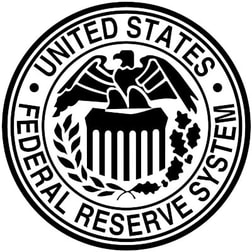
The Fed’s most important responsibility is to monitor inflation and get ahead of it when necessary. Despite 3,000 employees in Washington, DC and many more around the country, a large percentage of whom are tasked with watching the economy for inflationary signals, the Fed missed all the warning signs of the current inflation and has been playing catch-up ever since.
Once we were in the throes of the inflation, the Fed compounded its bungling by assuring the public that the inflation would be transitory. Wrong again.
Another principal Fed function is bank supervision and regulation. The agency division responsible for this is staffed with a large number of people whose job it is to be alert to early warning signals that a bank, or the banking system, might be in trouble. Despite that, the collapse of Silicon Valley Bank, the 15th largest U.S. bank, as well Signature Bank, appears to have come as a complete surprise to the Fed.
Chairman Powell was an enthusiastic proponent of Congress’s 2018 rollback of the Dodd-Frank Act provisions put in place only eight years before as a bulwark against the banking abuses that resulted in the Great Recession, the worst economic meltdown in 80 years. This bipartisan fiasco (50 Democrats voted for it along with virtually every Republican Senator and Representative) set the table for the Fed’s lax supervision and the ensuing bank collapse.
To say that the Fed fell down on its job is an understatement. If it cannot perform its key functions, the question must be asked: Has the Fed outlived its usefulness after 110 years? After so many years, institutions become sclerotic and distracted from their missions, instead turning much of their attention and brain power to bureaucratic survival. It’s simply the nature of the beast.
Congressional oversight of the Fed and the bank supervisory functions of the other government financial sector regulators can also be cited as a contributor to the current mess. However, no one expects much from congressional oversight of anything, given Congress’s track record of grandstanding in lieu of actual oversight (for example, the Tik-Tok hearings).
The series of recessions and banking crises of the late 19th and early 20th centuries demonstrated beyond any doubt that the nation needed a central bank. And for most of its history, the Fed did a passable job reining in inflation and promoting full employment (its two primary objectives). It has not done as well with respect to bank supervision and regulation, likely because these are duties it shares with six other federal agencies.
What all this indicates is that it might be time for Congress to take a deep dive into how we regulate financial institutions across the board. The system clearly does not work anywhere near as well as it must for the economy to be strong and stable. At a minimum, the current turmoil should prompt Congress to establish a bipartisan commission to study the matter and report back with recommendations for improvement.
P.S. to Congress: When constituting such a study commission, please make sure that Larry Summers is one of its members.
Dick Hermann
April 3, 2023


 RSS Feed
RSS Feed